Anxiety is a normal part of life. Everyone experiences anxiety at times. You may be suffering from generalized anxiety disorder if worries and fears are so frequent that they interfere with functioning and relaxation.
What is generalized anxiety disorder?
Generalized anxiety disorder is characterized by uncontrollable anxiety about common circumstances and occurrences. Occasionally, GAD is referred to as chronic anxiety neurosis.
GAD differs from normal feelings of anxiety. Every once in a while, it is natural to feel anxious about certain aspects of your life – for example, your finances.
A person suffering from GAD may constantly worry about finances multiple times per day at the end of the month. Often, this happens even when there is no reason to worry. Generally, the person is aware that they do not need to worry about anything.
Many reports feeling that something will go wrong or feeling as if they cannot calm themselves. They may just worry, but they cannot say what worries them.
Worrying excessively may be frightening and interfere with daily activities and relationships.
Check: Obsessive Compulsive Disorder (OCD).
Symptoms of generalized anxiety disorder
The following are symptoms of generalized anxiety disorder:
- Concentration problems
- Irritability
- Fatigue and exhaustion
- Muscle tension
- Vomiting or diarrhea regularly
- Sweaty palms
- Shaking
- Rapid heartbeat
- Neurological symptoms like numbness or tingling in different body parts
- Feeling of restlessness, tension or on edge
- Being irritable
- Having trouble controlling worries
- Finding it difficult to fall or stay asleep, experiencing restlessness or not having a satisfying sleep
Read: Postpartum Anxiety
Generalized anxiety disorder symptoms in children and teenagers
While children and teenagers may worry the same as adults, they may also worry excessively about:
- Schoolwork or participation in athletic events
- Safety of family members
- Being punctual (punctual)
- Catastrophic events such as nuclear war or earthquakes
A child or teenager who is overly worried may:
- Trying too hard to fit in
- Perfectionism
- Redo an assignment because it wasn’t perfect the first time
- You spend a lot of time on homework.
- Lack confidence
- Strive to gain approval
- Need constant confirmation of their performance
- Feeling symptoms such as stomachaches or other ailments
- Stay away from school or social situations
Also, check: Major Depression Disorder
Comparison of GAD with other mental conditions
Anxiety is commonly associated with mental health problems such as depression and several phobias. There are several ways in which GAD differs from these conditions.
Anxiety is common in cases of depression, and phobias cause individuals to worry about one particular thing. GAD patients worry about multiple things over a long-term period of time, sometimes six months or more, or they may not know what worries them.
Causes of general anxiety disorder
Risk factors and causes of GAD include:
- Inherited anxiety
- Stressors such as personal or family illnesses may be recent or prolonged
- Excessive tobacco and caffeine intake can worsen anxiety
- Childhood abuse
Mayo Clinic statistics show that women are twice as likely to suffer from GAD as men.
Also, check: Side Effects of Overthinking
Diagnosis of generalized anxiety disorder

Mental health screenings can be performed by your primary care provider to diagnose GAD. During the evaluation process, you will be asked questions about your symptoms and how long you’ve been experiencing them.
You may be referred to a mental health professional like a psychiatrist or psychologist.
If your symptoms persist, your doctor may recommend medical tests to rule out underlying illnesses or substance abuse problems. Several factors have been linked to anxiety, including:
- Gastroesophageal reflux disease (GERD)
- Thyroid disorders
- Heart disease
- Menopause
The primary care provider may recommend additional testing if they suspect that a substance abuse problem or medical condition is causing anxiety. Here are some examples:
- A blood test could determine whether your thyroid is functioning properly
- Tests of urine to detect substance abuse
- X-rays of the digestive system or endoscopic examinations of the esophagus can be used to detect reflux disease
- Tests to diagnose heart conditions, such as X-rays and stress tests
Recommended: COVID Anxiety Syndrome
Complications
It can be disabling to suffer from generalized anxiety disorder. The following can happen:
- Your ability to concentrate hinders your ability to perform tasks efficiently and quickly
- Distract your attention and time from other activities
- You will lose energy
- Depression is more likely to occur
There is also a possibility that generalized anxiety disorder could lead to or exacerbate other physical health conditions, including:
- Irritable bowel syndrome or ulcers are common digestive problems
- Migraines and headaches
- Illness and chronic pain
- Insomnia and sleep problems
- Issues related to heart health
The treatment and diagnosis of generalized anxiety disorder can be complicated due to its association with other mental health issues. Generalized anxiety disorder is commonly associated with the following mental health disorders:
- Phobias
- Panic disorder
- Post-traumatic stress disorder (PTSD)
- Obsessive-compulsive disorder (OCD)
- Depression
- Suicidal thoughts or suicide
- Substance abuse
Prevention
Symptoms of generalized anxiety disorder are difficult to predict, but there are steps you can take to reduce their impact:
- Get help as soon as possible. The longer you wait to get treatment for anxiety, the harder it may be to treat.
- Keep a journal. A mental health professional and you can identify what causes stress in your life and what helps you feel better by tracking your personal life.
- Set priorities in your life. The best way to reduce anxiety is to manage your time and energy carefully.
- Do not use unhealthy substances. Even nicotine and caffeine use can worsen anxiety, as can alcohol and drugs. There is a likelihood that quitting any of these substances will cause you anxiety if you are addicted to them. To quit smoking, you may need a treatment program or support group if you are unable to do it on your own.
Generalized anxiety disorder treatment
The most common treatment for GAD consists of medication combined with cognitive-behavioral therapy. And your daily habits can improve your health.
Cognitive behavioral therapy (CBT)
A mental health professional meets with you to talk for a mental health session. They aim to change your thinking and behavior. Many people with anxiety have found lasting relief through this approach.
Pregnant women who suffer from anxiety disorders should consider taking it as a first-line treatment. Others have found cognitive behavioral therapy to be effective in reducing anxiety for the long term.
During sessions, your therapist will teach you how to identify anxious thoughts and how to control them. You will also learn how to calm yourself when distressing thoughts arise.
The treatment for GAD commonly includes medications as well as therapy.
Related: How to Deal with Social Anxiety
Medication
Most doctors who prescribe drugs will create a short-term medication plan as well as long-term medication plans.
Short-term medications can ease anxiety-related symptoms such as stomach cramps and muscle tension. Generally, these are anti-anxiety medications.
Medications that are commonly prescribed to treat anxiety include:
- Alprazolam (Xanax)
- Clonazepam (Klonopin)
- Lorazepam (Ativan)
The risk of dependence and abuse associated with anxiety drugs is high, so anti-anxiety medications should not be taken for extended periods.
In the long run, antidepressants are highly effective. The following antidepressants are commonly used:
- Buspirone (Buspar)
- Citalopram (Celexa)
- Escitalopram (Lexapro)
- Fluoxetine (Prozac, Prozac Weekly, Sarafem)
- Fluvoxamine (Luvox, Luvox CR)
- Paroxetine (Paxil, Paxil CR, Pexeva)
- Sertraline (Zoloft)
- Venlafaxine (Effexor XR)
- Desvenlafaxine (Pristiq)
- Duloxetine (Cymbalta)
A few weeks are required for these medications to take effect. These can also cause side effects, such as diarrhea, nausea, and dry mouth. Some people can’t bear these symptoms and so discontinue taking these medications.
Suicidal thoughts are very rare among young adults when starting treatment with antidepressants. Make sure you stay in touch with your prescriber if you’re on antidepressants. If you experience any mood or thought changes that concern you, report them to your doctor.
Doctor may be prescribed both antidepressants and anti-anxiety medications. In this case, you would only need to take anti-anxiety medication for a few weeks – or as needed – until your antidepressants begin to work.
Recommended: Multiple Strategies To Control Overthinking
Side effects of GAD treatment
If benzodiazepines are taken on an ongoing basis, it’s possible to become dependent on them.
There are different side effects associated with antidepressants used to treat GAD, depending on the drug and on the person taking it. A number of side effects have been reported, including sleepiness, weight gain, nausea, and problems with sexual function.
Therapy and healthy lifestyle measures have no negative side effects. Anxiety disorders can be managed with these methods, or medications may also be needed.
Lifestyle changes to reduce symptoms of GAD
Adopting certain lifestyle habits can provide relief to treat general anxiety disorder. Here are some examples:
- Get enough sleep, exercise regularly and eat a healthy diet
- Meditation and yoga
- Don’t take stimulants, such as caffeine and diet pills, and avoid stimulants like coffee
- Sharing fears and worries with a family member, spouse or trusted friend
Alcohol and anxiety
Alcohol can reduce anxiety almost immediately. Because of this, people with anxiety often drink alcohol to feel better.
Alcohol may temporarily lower your mood, but keep in mind that it can significantly worsen your mood later on. It is possible to feel more irritable or depressed in the hours or days after drinking. Additionally, alcohol may interfere with anxiety medications.
The combination of certain medications and alcohol can be deadly. Ask for help from your primary care provider if drinking disrupts your daily activities. The Alcoholics Anonymous (AA) program offers free support for people who want to stop drinking.
Related: Alcohol Use Disorder
When to see a doctor
Having a little anxiety is normal, but you should see a doctor if:
- Worry too much, which may interfere with your relationships, work, or other parts of your life.
- Your mental health is negatively affected, such as depression, irritability, drug use, or an anxiety disorder.
- You think about Suicide or try to commit suicide – seek immediate medical attention.
People who suffer from GAD can manage their symptoms with lifestyle changes, therapy, and medication. Ask your doctor if you worry too much. Your mental health might need to be assessed by a specialist.
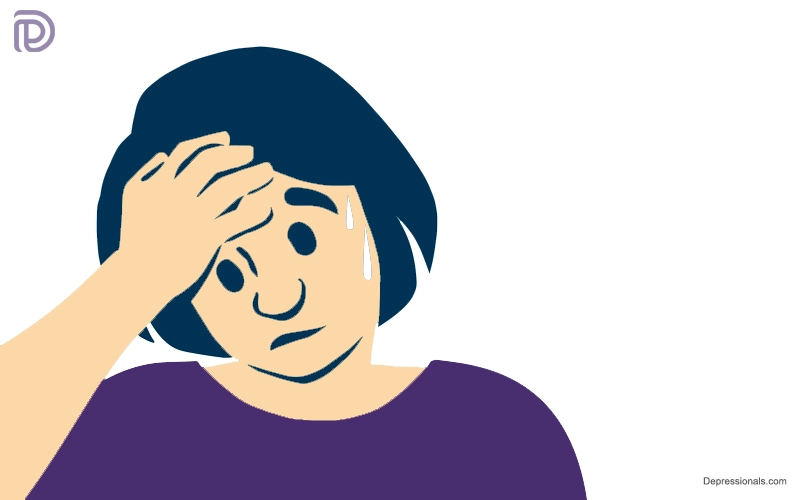
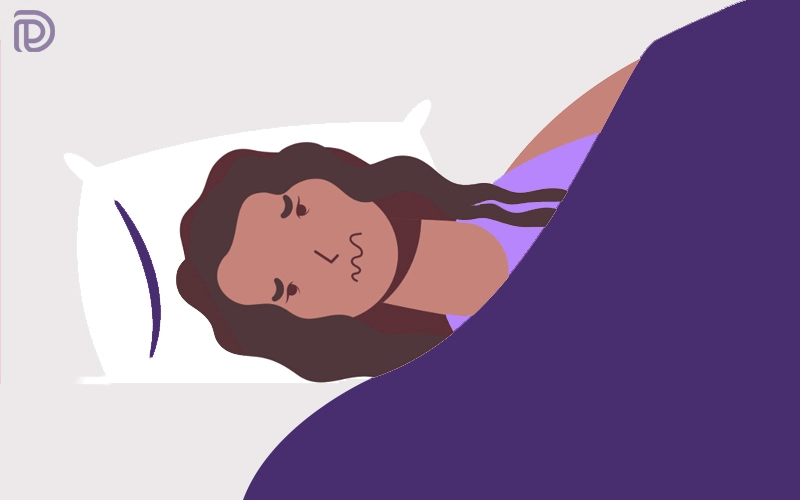
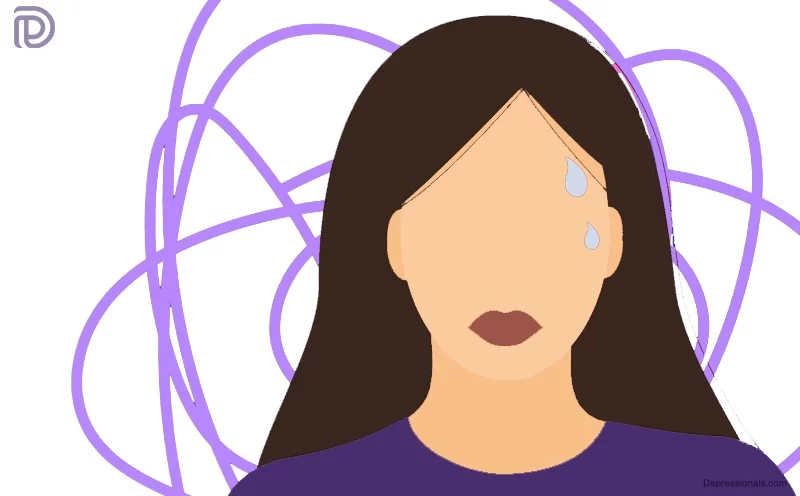
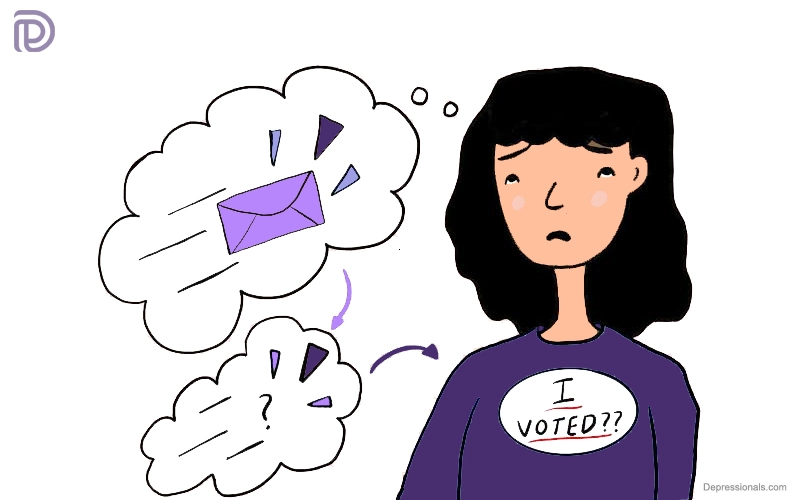
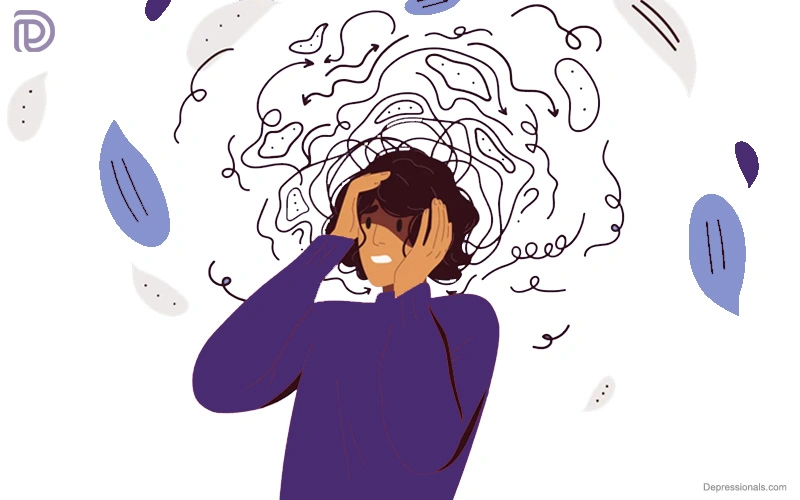

I have been surfing online greater than 3 hours nowadays, yet I never found any fascinating article like yours. It’s pretty worth sufficient for me. In my view, if all webmasters and bloggers made good content as you did, the internet might be much more helpful than ever before.
The article is good. Thank you so much.
It is a pleasure to read your writing style on this website.
Thank you sharing your thinking on this website.
This is very informative.